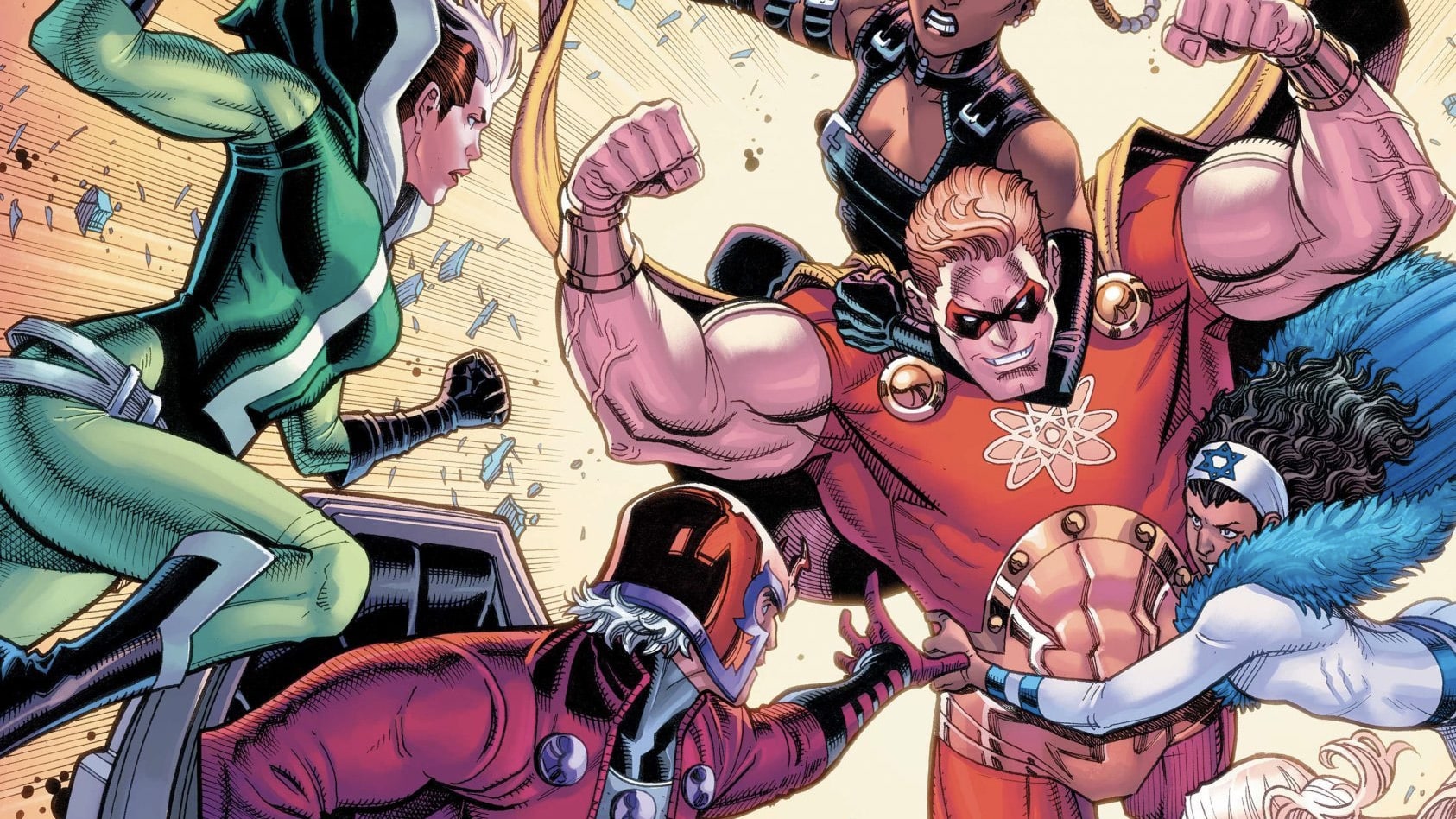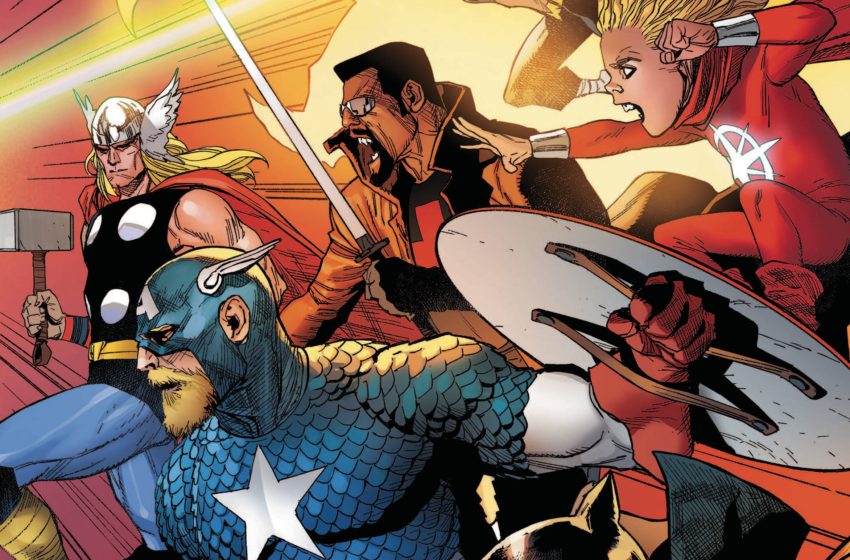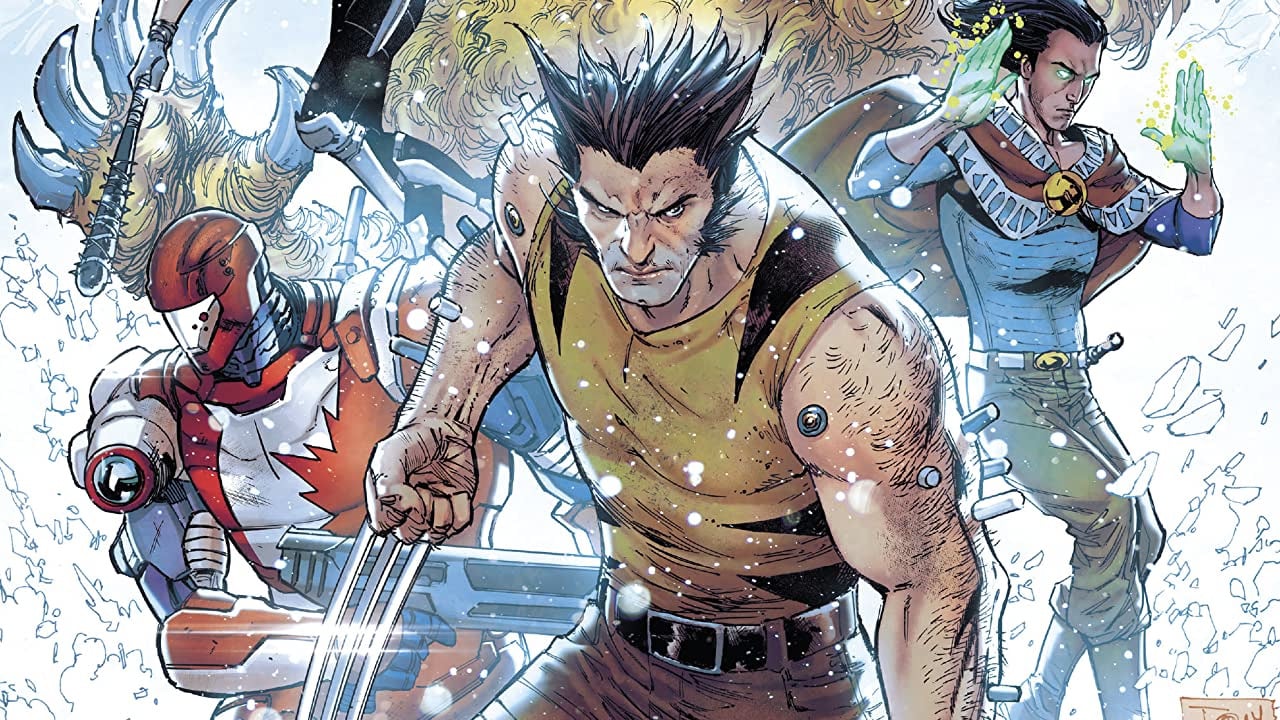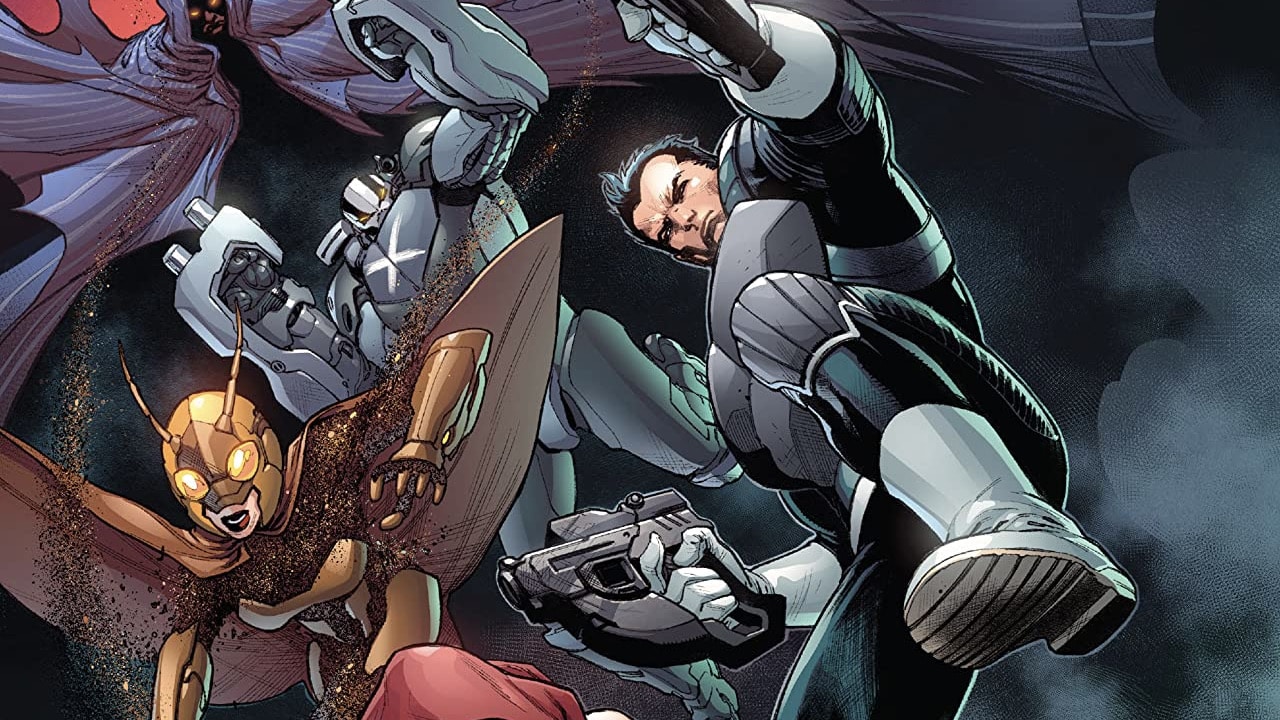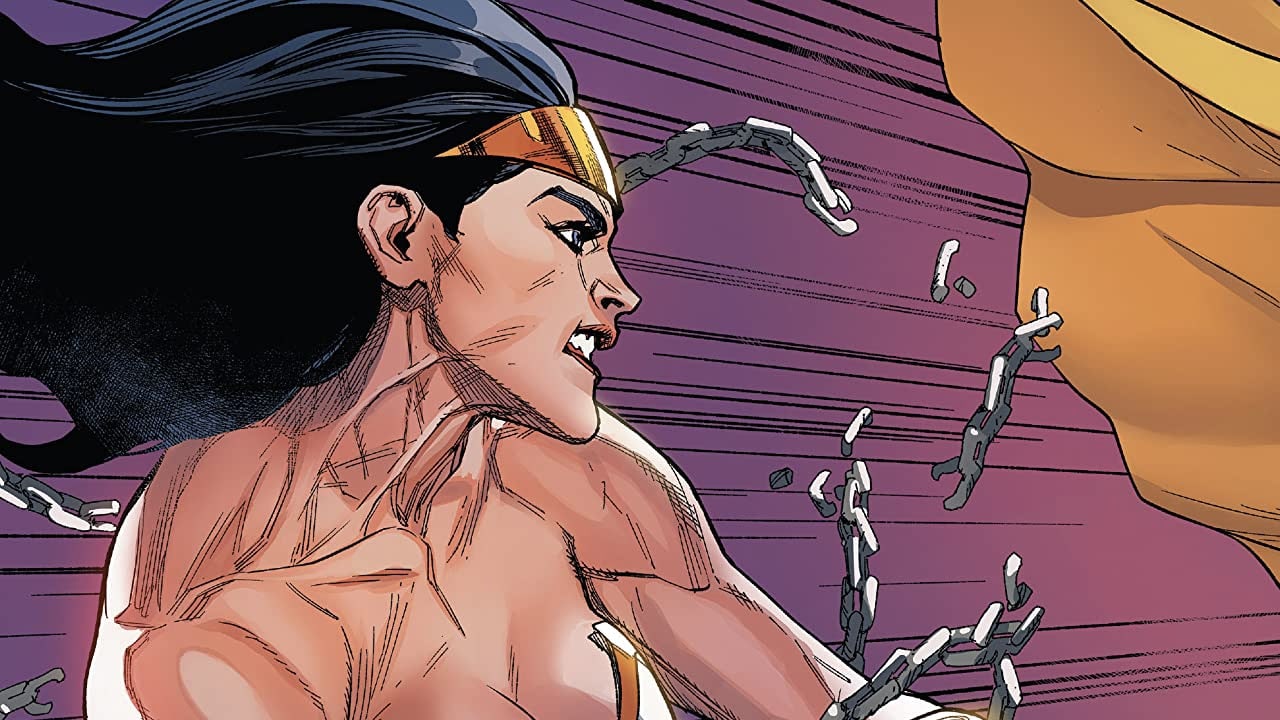To honor the memory of Professor X, Magneto leads his band of mutant rebels to restore hope to a world that fears and hates them…and doesn’t really exist. Heroes Reborn: Magneto & the Mutant Force #1 is written by Steve Orlando, drawn by Bernard Chang, colored by David Curiel, and lettered by Clayton Cowles.
Back in 2000, Marvel released a Mark Millar/Sean Phillips book called X-Men #1. It was a one-shot story with a unique high concept. It was what a book by the Marvel Comics Group would look like within the Marvel Universe. It had the trapping of any other X-Men title, but something was wrong. Characters didn’t act like themselves; tertiary foes like Mastermind and Deathbird stood side-by-side with stalwarts like Cyclops and Wolverine. The core premise was twisted in as though a fictional Mark Millar wrote a comic based on a half-remembered news article about the X-Men. The strangest thing about this? None of this context was given in the issue. If, like me, you found this while longbox diving, you were thrown into the middle act of a story that assumed you had knowledge of years and years of continuity, and didn’t give you any real resolution. Thanks to the quirk that the comic was given a generic name and existed in the pre-blog days, even searching for context about this book is difficult today. It’s an artifact unmoored from our reality.
I say all that because there is not a better comparison to Heroes Reborn: Magneto & The Mutant Force #1 than that bizarre title. To its credit, the recap page that opens this issue does tell you that this is a world where the Avengers never existed, instead replaced with The Squadron Supreme. What it doesn’t tell you is that the Squadron Supreme was spawned from Roy Thomas’ desire to write about DC Comics while he was editing Marvel, that Heroes Reborn (2021) has no connection to the Image-infused implosion that was the original Heroes Reborn, or that the core gimmick of this event is having Marvel heroes reborn [Ed. Note: Oh, now I get it.] as DCComics-inspired characters. It’s simply a bizarre story that drops you into a universe unannounced, and pulls you out without the catharsis of a true ending.
Steve Orlando knows a thing or two about DC Comics. He was a rising star at the company, with well received titles like Midnighter, Justice League Of America, and Martian Manhunter, before his quiet exit in 2020. His Marvel work has been spottier, to say the least: before COVID-19 destroyed their publishing schedule, Orlando was planned to do a series called The Darkhold, a book that has yet to be solicited. He’s been filling time with forgettable tie-ins, the latest of which is seen here.
Perhaps by intention, Orlando baptizes readers with continuity for a world that never existed. Each character in The Mutant Force has their own arc, hastily explained so that the reader can understand the subtle and forgettable differences between this title and the “real” universe. This rushed exposition is compounded by Orlando’s struggle with character voices. His team includes eight unique characters, all of whom speak with the same rugged speech pattern. They are tired of living in a world where not-Superman (i.e. the Squadron’s leader Hyperion) executes cullings of mutants. It’s understandable, it’s just not interesting to read.
On art duties are Bernard Chang, fresh from bailing on Children Of The Atom, and the ever dependable colorist David Curiel. Any issues with Orlando’s clarity are compounded by an artist who isn’t equipped to support the story he is telling. You see, this is a tale on two fronts: a psychic rescue evoking Grant Morrison and Frank Quitely’s New X-Men classic, and a duel against Hyperion and Power Princess. But Chang doesn’t do enough to differentiate the locales. The mindscape and reality look identical, with only the panel gutters signaling a difference. He jumps between worlds mid-page, startling the reader who has to stop and ask “what world is this now?”
This title, like most comics, ends on a cliffhanger. The resolution of which we will never see. It’s a neat moment that means nothing because we don’t care about these characters or their struggles or their world. I like to imagine the dedicated X-Men collector, the one excited for Frenzy and Sabra, the one whose shop knows to pull this title like every other X-Men book. I like to imagine them picking this up, reading this through, closing that final page, and asking themselves what the hell they just read. You will learn nothing new about the X-Men here, and you’ll learn even less about Heroes Reborn you’ll simply get a bottom-of-the-barrel tie-in that has no passion behind it. Like that Millar/Philips oddity, you’ll find a world that feels wrong, that doesn’t explain itself, and isn’t enjoyable to read. A book that truly honors the legacy of Heroes Reborn.
Zachary Jenkins co-hosts the podcast Battle of the Atom and is the former editor-in-chief of ComicsXF. Shocking everyone, he has a full and vibrant life outside all this.

